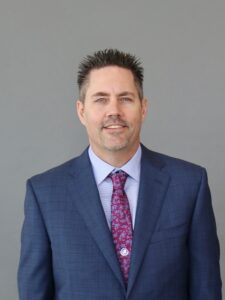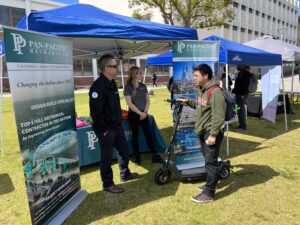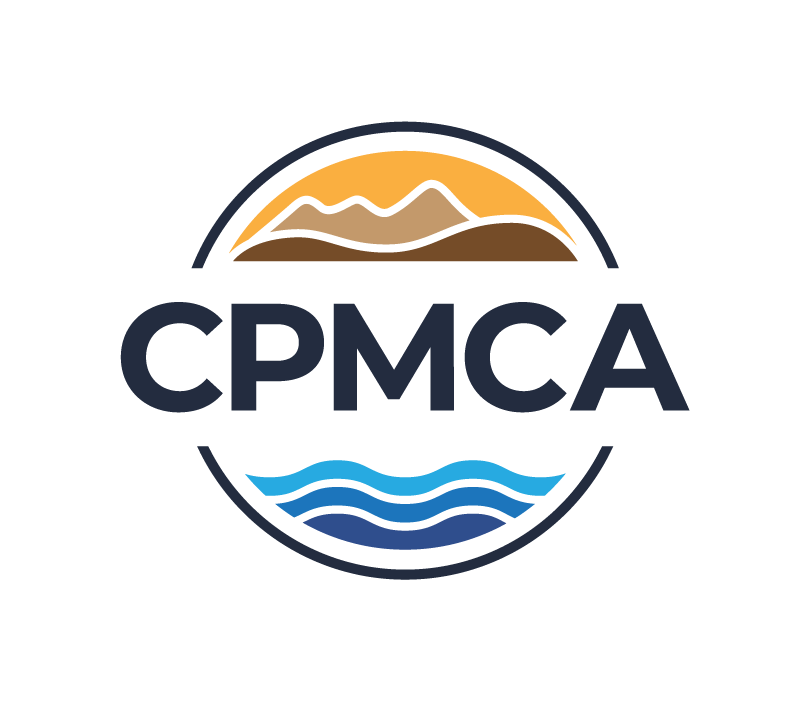New Board Member Spotlight: Steve Valot
Pan-Pacific Mechanical’s Steve Valot shares his story from Apprentice to Project Executive
Steve Valot was only a boy when he first joined his Dad on the job site. Like many in the industry, Valot joined the trades following in the footsteps of a family member. Those key experiences working alongside his Dad led him to where he is today–a Project Executive with Pan-Pacific Mechanical.
Now, after 26 years of working his way up from Apprentice, Valot credits his career journey to those who got him here. Today, he’s passionate about developing the next generation of talent to keep the industry strong and growing.
We connected with Steve to learn more about his career path and his hopes for the future of the industry.
Tell us about your career journey.
 I guess you could say I was born into it. My Dad was a union plumber, so all I ever knew was construction. He took me to my first job when I was nine, which was a theater project in Hermosa Beach, and I was fortunate to spend some summers working with him on his projects.
I guess you could say I was born into it. My Dad was a union plumber, so all I ever knew was construction. He took me to my first job when I was nine, which was a theater project in Hermosa Beach, and I was fortunate to spend some summers working with him on his projects.
This exposure at a young age made me fall in love with the industry and grow a much deeper appreciation for the work my Dad did.
When I was 18, having barely made it through high school, I walked into the garage at our house and told my Dad, “Yeah, I should probably go sign up at the hall.”
The next day, my Dad and I drove down to Local 545 in Santa Monica (at the time), and I immediately was dispatched to the Getty Center Project for Murray Company.
Ironically, the first person I met in my plumbing career was Jim DeFlavio. I remember going home that night, laying in bed, looking at the ceiling and telling myself, “This is it! You have no fallback! You MUST make this count!” After a nine-month run, I broke my ankle playing hockey and was off of work for six months.
Then I was picked up by Pan-Pacific in October of 1996, which has been my home ever since.
I’ve been asked by young people how I got to where I currently am. Honestly, that’s a little bit of a tough question because it has multiple answers.
First and foremost, a person must have the drive, the hunger and the desire. You have to have it. If you don’t, then you’re not doing what you love. You should wake up every morning excited to tackle the day and inspired to have the ability to promote change in people’s lives! That’s the kind of determination you need to have.
Second, and just as important, never underestimate the power of the word YES. I’ve said Yes to countless opportunities and probably 80% of them, I had no clue what I was getting into, but I figured it out, no matter what it took.
I think of the time I had a chance to run a job. Scared by the unknown, but confident knowing I could do it. Do NOT underestimate the power of the word Yes and the opportunities it can provide for you in both professional and personal settings.
Third, and most importantly, be YOU. Don’t try to be someone else. Don’t create an expectation that your role or position will change lives. It’s not the role that changes people, it’s YOU. And if you take an interest in people and take the time to mentor them, celebrate their successes, help them up when they stumble, and care about them both personally and professionally, they will, in turn, be your biggest cheerleaders, your biggest supporters and your best teammates, ultimately resulting in the success of many, not just the success of one!
What’s your favorite part of your job?
Probably the no-brainer here is “building things,” and while that is a pretty cool part of what we do in the construction industry, I wouldn’t say it’s my favorite. The favorite and most rewarding part of my job, at this stage in my career, is that on any given day I have the ability to provide a positive impact on someone’s life and be a part of their overall success and life-long story.

Mentoring and challenging the youth in our industry has always been the most enjoyable part of my career. I’m thrilled to have been in a position where I could bring on employees who may not have had a construction background, and mold them into future leaders in our industry. These are folks that were just looking for a shot, an opportunity, someone willing to take a chance on them, and they end up being the hungriest, the most dedicated, the most loyal, and the best teammates anyone could ask for.
Our calling as leaders in this industry is not to call the shots and make the rules, but rather to promote, educate, cheer for, support, challenge, correct, applaud and mentor the next generation of leaders in our industry.
A leader allows people to go through struggle, but never fail. A leader views themselves as equal to the team, with the differing component being the final decision-maker. Leaders don’t need to hear themselves talk but rather listen with an open ear to take in the discussion and comments of their team.
My favorite part of my job is knowing that every day, there’s an employee or potential employee out there, whose life you have an opportunity to change and influence in a positive and lifelong way, that could have an exponential impact on the team, the company and organizations like this, for years to come!
What advice would you give to a younger person considering joining the industry?
The industry has changed a lot since I first started, and it will continue to change as new and emerging technologies are implemented globally.
The first tip is to understand why you want to get into this industry. What excites you about it? What makes you say, “This is the career I want,” understanding of course that this particular mindset may shift and mature over time, much like mine has.
 Secondly, where do you see the industry in the next five or ten years and how can you contribute to that direction? Is there a technology that you think may take a hold of our industry or may be a productive piece to a struggling puzzle? Be at the forefront of that.
Secondly, where do you see the industry in the next five or ten years and how can you contribute to that direction? Is there a technology that you think may take a hold of our industry or may be a productive piece to a struggling puzzle? Be at the forefront of that.
Finally, the last piece of advice I would give is, no matter what area of the industry you venture into, make a difference. Don’t just be a number. Don’t just be an employee. Make an impact! There are so many great resources and knowledgeable people in this industry, never hesitate to reach out. Those resources will make you better.
What do you think are some of the biggest challenges and opportunities facing the industry?
I see three challenges ahead for our industry. First, we are facing a double-edged sword with an aging workforce and an environment where the current generation is taught that the only path to success is through a four-year degree.
As those workers retire, we need to fill those shoes with fresh well-rounded mechanics, able to utilize not only today’s technologies but also be able to solve problems with and without technology. In this industry, some challenges cannot be solved by a computer. We can’t lose sight of the value this brings to the industry.
Our second challenge relates to the next generation of leadership. We must nurture, grow and cultivate this group of future leaders. We are called to lead by example, lay the groundwork and create the expectation. Probably more important than our outlook and future, is our past, filled with challenges and ultimately how we overcame them. We must share this.
Finally, the last challenge I see is with the emergence of new technologies in construction, the effects this has on our field labor. As these technologies emerge, the upgraded efficiencies it allows for companies ultimately will result in a smaller, more compact workforce.
All three of these factors interact with each other. We’re challenged with an aging workforce and replacing those workers, yet we have emerging technologies that can shrink the amount of labor required to complete a task. We’re seeing this everywhere in our industry. Buildings are getting built faster, fabrication of work is increasing, and the length of time for any given task has, at times, been cut in half due to these new efficiencies.
The big question remains, how do we balance the above challenges to remain productive and relevant as the industry changes while increasing our workforce/membership and increasing market share in the coming years?
Why is it important to you to be a CPMCA board member?
When the opportunity presented itself to be our company representative at CPMCA I didn’t hesitate to volunteer. I was excited to gain a fresh new perspective on the industry and the challenges we collectively continue to face. Going in, I knew it would take some time to understand all the moving parts and functions of CPMCA, but I wanted to put myself in a position where I could make an impact.
Naturally, that first step is on the Board. I’m honored to be a Board Member as this role allows me to have a collective hand on the wheel for how we steer the CPMCA ship in our industry. I understand that the first few months will involve a lot of listening, absorbing, and reflecting on ways we can make our organization better and stronger in the coming decade.
My goal is to provide valuable input on the challenges we face and a different perspective on the work we do and how we can impact the lives of others both on the personal and company level.
While I continue to be impressed with the true partnership between CPMCA, DC16, PIPE, NITC & the A&J, I’m excited to continue to strengthen and grow this network. I look forward to contributing as a board member now and taking on a greater role in the years to come. I am committed to making our industry better, our organization stronger and being a positive role model for the next generation of leaders that enter our industry.
Want to learn more about Steve? Connect with him on LinkedIn >>


